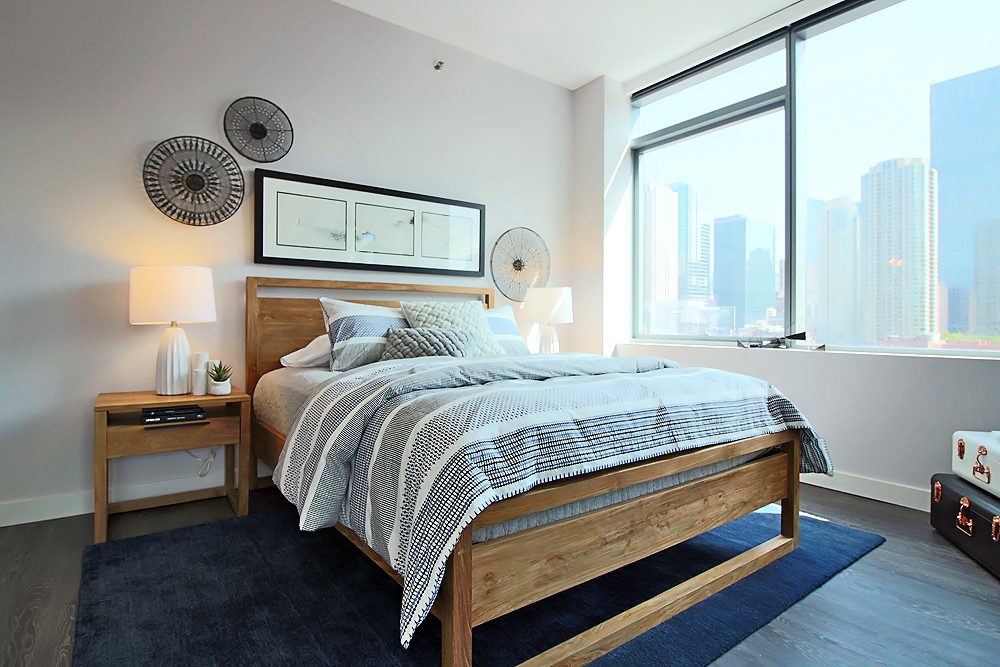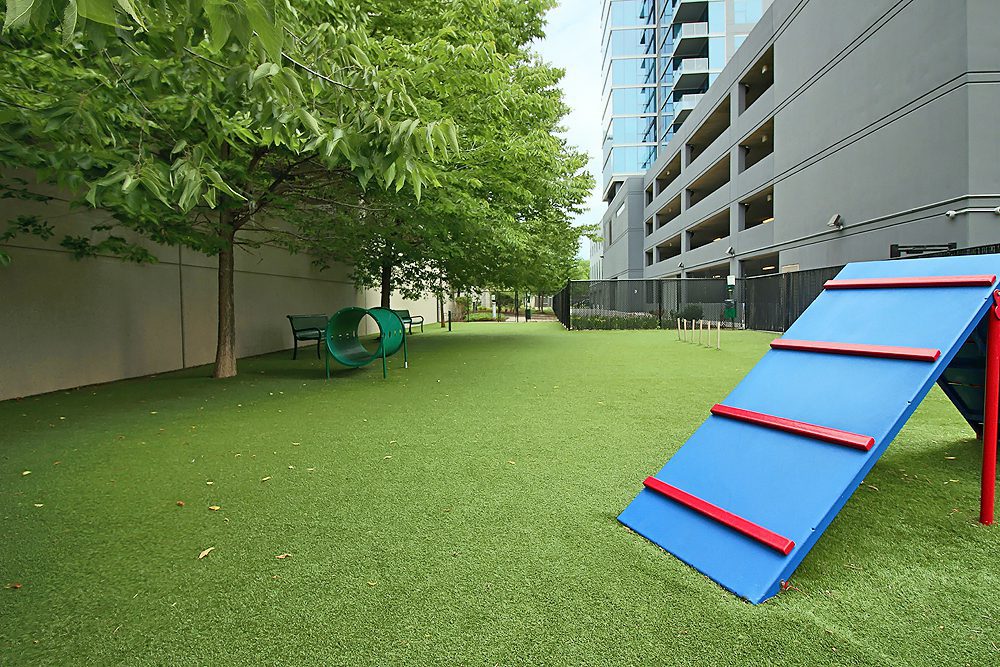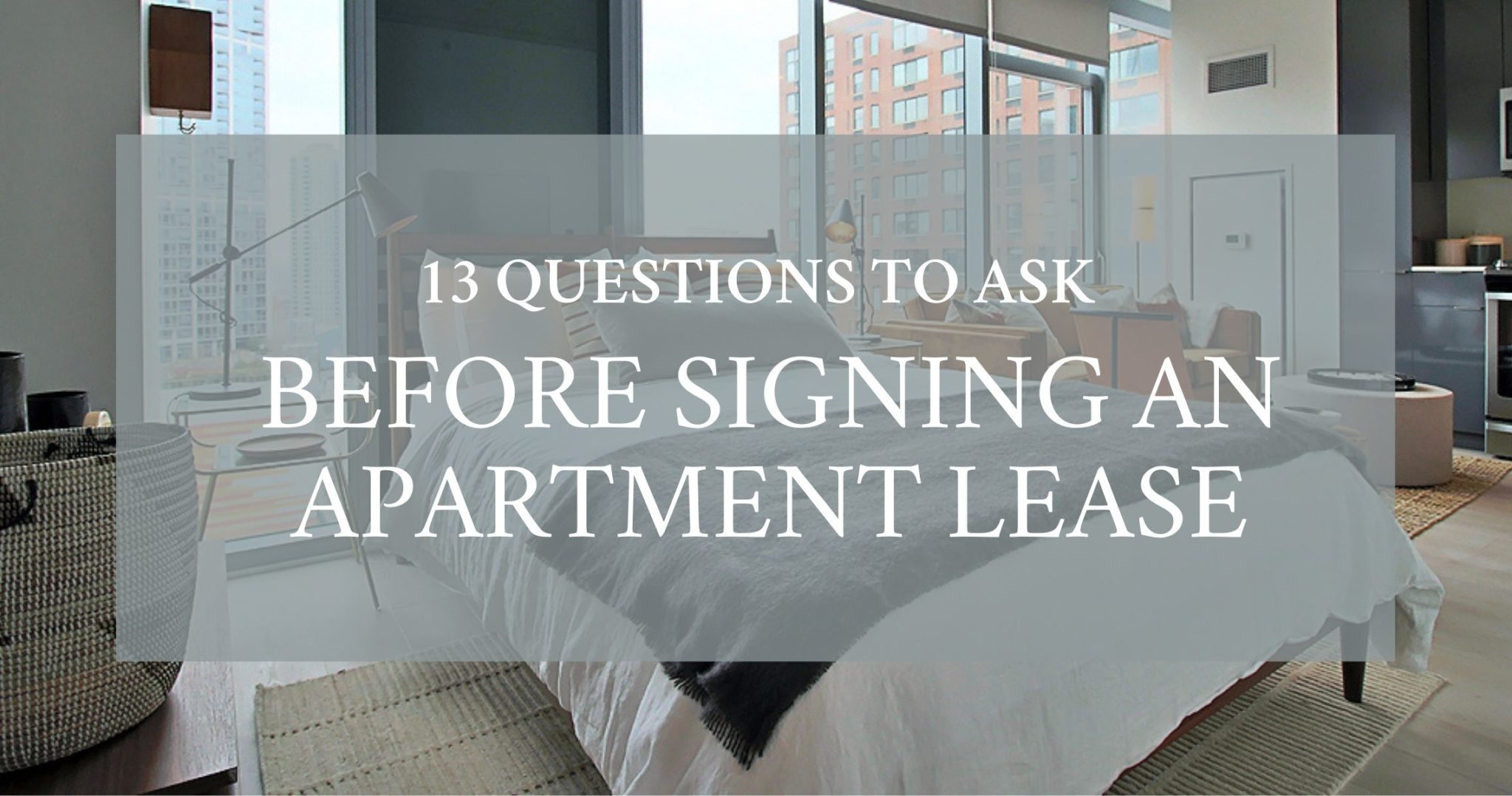Table of Contents
- 1. What Are The One-Time Fees?
- 2. Do I Have to Pay Utilities?
- 3. What Happens if I Need to Sublet My Apartment?
- 4. Are Pets Allowed?
- 5. What If I Have to Relocate Before My Lease is Up?
- 6. How Many Roommates Can Share an Apartment?
- 7. Is Rent Prorated if My Lease Doesn’t Start on the First of the Month?
- 8. How Long Can Guests Stay?
- 9. What are My Options for Paying Rent?
- 10. How Quickly are Maintenance Requests Completed?
- 11. What’s the Move-In & Move-Out Process Like?
- 12. Can I Give a Key to Someone?
- 13. What Happens When My Lease Ends?
Renting a new apartment should be a super-fun adventure. From touring buildings to weighing what features and amenities you love most; choosing an apartment is a big and exciting decision. I still get goosebumps every time a customer declares “this is the one!”.
Whether you’re relocating to Chicago or hopping from one of the city’s best neighborhoods to another, there are a seemingly unlimited number of luxury apartments to choose from.
Before you sign on the dotted line, it’s important to understand all the details of your lease. Part of my job as a Chicago leasing agent is to help my customers not just find the right apartment, but to answer all the questions that come along with it.
1. What Are The One-Time Fees?
Understanding the one-time fees you’ll have after signing a lease is a big deal. Your leasing agent can give you the low-down on what buildings have what fees. But, the two most common up-front costs when renting an apartment are security deposits and move-in fees. If you have a pet, scroll down to #4 as well.
Most professionally managed luxury apartment buildings actually don’t require a security deposit. But, there are a handful of buildings in downtown Chicago that still do and it’s typically equal to your monthly rent. At the end of your lease, you’ll get your deposit back, less any damages.
For apartments that don’t charge a security deposit, you’ll likely be charged a one-time admin fee at lease signing. Sometimes called a move-in fee, this charge covers the expenses that the building incurs when tenants move in and out. Think everything from paperwork to minor repairs in units. In downtown Chicago, move-in fees range from $300-$500.
2. Do I Have to Pay Utilities?
In most cases, a renter pays for some or all of the utilities associated with the apartment. There are a couple ways that renters in luxury apartment buildings are charged for utilities:
- Some or all utilities included in the rent price.
- Some or all utilities charged separately from the rent price.
If you have to pay for utilities on top of your rent, they’ll be doled out typically through one of the following allocation systems:
- Individual usage- just like it sounds, you pay for what you use.
- Utility package- the property charges a fixed rate per month for certain utilities that are covered, regardless of your individual usage.
The charges can vary so asking for a ballpark monthly cost is a good idea.
3. What Happens if I Need to Sublet My Apartment?
Even if you plan on staying in your apartment for the entirety of your lease, be sure to ask about subletting. In Chicago, the process for subletting your apartment is actually less of a hassle than you might think.

First things first – when you sublease, the apartment is still held in your name for the duration of your lease. The new renter is essentially renting from you, not the building. But, the leasing office will still want your subleaser to fill out an application so they can run the same background check that everyone else in the building goes through.
Quick tip – when it comes to finding a sublessee, check with the leasing office in your building. Sometimes they have a list of people that are looking. If you come up short there, I recommend posting on Craigslist’s subletting section.
4. Are Pets Allowed?
It used to be that pets and renting didn’t mix. But my-oh-my how times have changed. Nowadays, luxury buildings don’t just allow dogs, they cater to them with crazy-cool dog-friendly amenities like indoor dog parks and grooming stations.

If you’re renting with a pet, be sure to ask your leasing agent about pet fees and breed restrictions.
Apartment Pet Fees and Rent
Apartment buildings usually have a one-time pet-fee, and some will also charge monthly pet rent.
How much extra will renting an apartment with your cat or dog cost you? In Chicago, apartment pet-fees range from $200-$700 per pet. Monthly pet rent, if required, will run you an extra $20-$30 a month. Just be glad you’re not having to put them through college!
These charges cover basic wear and tear such as small scratches. But, if your pet causes any major damage like chewed walls (yes, I’ve seen it happen), the building will charge you for damages.
There is one other pet-fee that’s becoming common, but responsible pet-owners need not worry. Some luxury apartment buildings will take your dog’s DNA when you move in. No, they’re not going to clone your perfect-pup. But they are going to test abandoned doggie doo-doos that are left in shared amenity spaces. If they belong to your darling little furball, you’ll get hit with a fee.
Dog Breed Restrictions in Apartment Buildings
Yes, most luxury apartment buildings in Chicago do have restrictions on certain dog breeds. From Pit Bulls to German Shepherds, these large dog-breeds can make finding an apartment a little hard. If you have a breed on the restricted list though, all hope is not lost. A seasoned leasing agent can help you sort through which apartment buildings will let you rent with your big, lovable pup.
5. What If I Have to Relocate Before My Lease is Up?
Sometimes life takes an unexpected turn. If Chicago was a pit-stop on your career path, and you’re relocating to another city before your lease is up, you have two options.
Buyout Your Lease
When you sign your lease, review your buyout terms. Most buildings in Chicago have a two-month buyout. So, if your rent is $1,900 a month and you need to break your lease, it’ll cost you $3,800.
Sublease Your Apartment
If the expense of a buyout is a little hard to stomach, you do have the option to sublease (scroll on up to #3 for more details). If you can lease your apartment for a rent that’s equal to what you’re leasing it for, that’s a win.
Sometimes, the market has changed and your place might be renting for less than when you signed your lease. This is when you’re going to want to weigh your options…
Let’s say again that your rent is $1,900 a month. But today, your same unit is leasing for $1,500. Depending on how many months are left in your lease, you might be better off subleasing at a loss rather than paying a hefty buyout.
For instance, if you have six months left on your lease, a $300 a month loss will cost you $1,800 versus that $3,800 buyout scenario.
6. How Many Roommates Can Share an Apartment?
Most apartment buildings in Chicago will allow 2-3 renters per bedroom. Does this mean you can pile nine roommates into a three-bedroom apartment? Probably not since most buildings also have maximum-occupant rules.
Your best bet is to work with a leasing agent who understands different apartment building’s occupancy rules.
7. Is Rent Prorated if My Lease Doesn’t Start on the First of the Month?
Yes, it is.
Typically, if your lease starts during the first half of the month, you’ll pay a prorated rent-rate based on the date your lease begins. If your lease starts toward the end of the month (the 15th in some buildings and 20th in others), you’ll tag the prorated rent onto your next month’s rent.
For instance, if your rent is $2,500 and your lease begins on May 7th, your rent payment for May is about $1,935. If your lease begins on May 24th, it would be about $645 and due with June’s rent.
8. How Long Can Guests Stay?
Defining a “guest” is simple. It’s anyone staying at your apartment who isn’t listed on the lease.
Most luxury buildings do stipulate how long guests can stay. A two-week period is pretty typical but it does vary building by building so be sure to work with your leasing agent to understand the rules.
If you have guests coming but don’t have room for them – maybe you’re renting a studio or one-bedroom apartment – lots of buildings have guest suites that can be rented by the night. This is a great option for guests you want close but not tooooooo close.
9. What are My Options for Paying Rent?
Most luxury apartments in Chicago make paying your rent easy-peasy. You can opt-in to automatic payments or pay online through your resident account. If you like to roll old-school, some apartments do still accept checks.
10. How Quickly are Maintenance Requests Completed?
It depends on the request, but luxury apartment buildings are usually pretty awesome about addressing any sort of problem very quickly.
If it’s an emergency, maintenance will be knocking on your door asap. For non-urgent matters, a 48-hour window to investigate your request is pretty common. There are even buildings here in Chicago that will pay you back your daily rent every day they’re late on that 48-hour promise.
11. What’s the Move-In & Move-Out Process Like?
Moving in and out of a mid or high-rise building in downtown Chicago is a little different than moving into a house in the ‘burbs.
Renters are usually given a scheduled two-hour window to use the freight elevator for their move. If you can, avoid moving on the last or first day of the month. The congestion on those days can be a little wild. If you do need to move during this peak time, be sure to reserve your time slot as far ahead of time as possible.
I often get asked what the best time to move is. If you can swing it, reserve your move-in time during the middle of the week. It’ll be much quieter and just less stressful.
12. Can I Give a Key to Someone?
The only people that receive a key are the ones on the lease. But yes, you may give an extra key to your significant other, your mom…even your dog-walker. You’ll need to add them to the building’s “permission to enter” list. And remember, the only people that can live in your apartment are the people on the lease.
13. What Happens When My Lease Ends?
Your lease may expire at the end of your lease-term, which means you gotta be packed up and out unless you’ve renewed it.
Or, your lease may state that it becomes month-to-month once it expires.
My best advice here is simple: read your lease – it’ll spell out when it ends and what your options are if you want to renew. Talk to your leasing agent if you have any questions.
I hope this list helps with some of the apartment-renting questions swirling around in your head. Of course, you’re sure to have more. Whether you’re wondering if the Fulton River neighborhood is the right spot for you or are curious which apartments in River North are the newest, my team and I know the Chicago rental market better than anyone in the city.
Give us a holler with any questions about renting in Chicago…we can’t wait to help you find your new place!
Similar posts
-

Advice and Tips
Apartment Living
Chicago Neighborhoods
Search Tips
Chicago’s Best Hidden Parks (and Where to Live Near Them)
-

Advice and Tips
Apartment Living
Search Tips
Explaining Net Effective Rent and What it Means for Chicago Renters
-

Advice and Tips
Apartment Living
Chicago Neighborhoods
The Most Bike-Friendly Neighborhoods in Chicago
